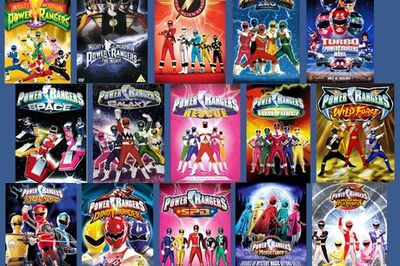
views
"In order to write, you need to have a sliver of ice in your heart."
His words came back to me when I watched Capote, biographic film focused on the life of the author Truman Capote and the four years he spent writing his best-known literary work - In Cold Blood. The film is an exploration of authorship, and the price one must pay for exceptional authorship. Investigations into authorship have been seen on film before. James L. Brook's As Good As It Gets dealt with a similar subject, but in a darkly comic way. There are many examples, though Capote stands out in its direct and uncompromising exposition of the sliver of ice as mentioned above.
Philip Seymor Hoffman's powerful portrayal of Truman Capote presents us with an extremely complex protagonist. Hermaphrodite, suave, and scathingly arrogant, he is deeply vulnerable. Exceedingly sensitive, he is capable of disturbing insensitivity. Compassionate and nurturing, he is capable of astounding cruelty. The film shows Capote at a time of his life when violent happenings in remote Kansas drew him away from New York literary circles to the doorstep of a creative epiphany. These events were as follows: two men broke into the Clutter household in the isolated town of Holcomb, Kansas on the night of November 14, 1959. By the morning, the entire Clutter family had been shot in their faces as they lay tied up in their beds. The brutal Clutter murders became matter for Capote's novel, which, as one of the film's characters says would "change the way people write." In Cold Blood was the first of its kind - a non-fiction novel - drawing from four years of rigorous investigative research by Capote. Prophetically, the author knew what he was on to. Arrogantly he claims in the film "It makes me shudder to think how good my novel can be."
There begins the potent dramatic irony of the film. The director's craft is strong. Through the stark landscapes of Kansas, a slightly shaky third person camera follows Capote as he climbs new heights in his own craft at the expense of his subjects, the killers, as they linger in jail waiting for the noose. The great success of the film lies in its conveying to us that cold blood was employed not only in the Kansas murders but also in the writing of Capote's book.
Clutter laboured to ascertain the psychology of the killer, Perry Smith. Smith was himself a walking contradiction, and it was this greatcoat of irony that drew the author to him. Smith had the vocabulary of a college graduate. His actions and behaviour in the courtroom and the jail displayed sensitivity, an aesthetic; even a moral centre. Yet, on the night of November 14, he had slit a man's throat and had fired a shotgun into four people's faces. Over the ashes of compassion, above the smoke and fog of predictable contempt rose Capote the author. For four years, he visited Smith in his cell, and these visits are shown in the film. They are awash with complexity.
Initially, Capote gains Smith's trust, as Smith feels that Capote's efforts might spare him a death sentence. But Seymore Hoffman's portrayal of Capote brings through the many levels that the author's brilliant conniving mind was working at. During these meetings, Capote was already basking in the glory of an unwritten book. Yet he was aware of a growing bond between him and Smith. There was an element of sexual attraction as well, but more than anything, Capote recognised in the condemned man the scars of a horrid, neglected childhood; scars that he nursed himself.
Eventually, everything falls into place for Capote to pen his highly significant novel. Capote's efforts even seem philanthropic. Yet, he knows it and his close friends know it that saving Smith would actually jeopardise his enterprise - leaving him with an unsatisfactory ending for his novel. The audience is given the breadth of vision to grasp this irony in its entirety and this irony is the situation of authorship - great authorship - dramatised.
Capote shows that authorship entails a cruel objectivity - feeling without feeling for. We are also shown the consequences of this cruel objectivity. Capote manages to complete his book, and gets all the accolades he had dreamed of, stoking his massive ego, but he implodes due to pressure from his own conscience. He watches Smith hang, knowing that without his hanging, his book would never be complete, and Smith goes to the gallows calling Capote his only friend. After the hanging, his closest friends judge Capote harshly and we are told that he never completes another book.
In Cold Blood remains a masterful landmark in modern literature. It utilises language with a precise poetry and crisp economy seen nowhere before. The film resembles it in this - it is stark, minimal - like the Canadian prairie landscapes that were used for Kansas in the filming. A palpable tension is sustained right through without overt support from a score. A weaker film would have relied on sentimental music, but Mychael Danna's score is heard at arm's length, and the most pivotal scenes are left bare, with long silences where some superb, Oscar-reaping acting comes forth to deliver magic. Together, these elements leave us with an interesting, nuanced and honest portrait of the author and the problem of authorship.
(Vasant works as a creative assistant to a film director in Mumbai)
first published:April 02, 2006, 15:27 ISTlast updated:April 02, 2006, 15:27 IST
window._taboola = window._taboola || [];_taboola.push({mode: 'thumbnails-mid-article',container: 'taboola-mid-article-thumbnails',placement: 'Mid Article Thumbnails',target_type: 'mix'});
let eventFire = false;
window.addEventListener('scroll', () => {
if (window.taboolaInt && !eventFire) {
setTimeout(() => {
ga('send', 'event', 'Mid Article Thumbnails', 'PV');
ga('set', 'dimension22', "Taboola Yes");
}, 4000);
eventFire = true;
}
});
window._taboola = window._taboola || [];_taboola.push({mode: 'thumbnails-a', container: 'taboola-below-article-thumbnails', placement: 'Below Article Thumbnails', target_type: 'mix' });Latest News
Some months ago, a Malayalam author with a prolific body of work to his name told me the following:
"In order to write, you need to have a sliver of ice in your heart."
His words came back to me when I watched Capote, biographic film focused on the life of the author Truman Capote and the four years he spent writing his best-known literary work - In Cold Blood. The film is an exploration of authorship, and the price one must pay for exceptional authorship. Investigations into authorship have been seen on film before. James L. Brook's As Good As It Gets dealt with a similar subject, but in a darkly comic way. There are many examples, though Capote stands out in its direct and uncompromising exposition of the sliver of ice as mentioned above.
Philip Seymor Hoffman's powerful portrayal of Truman Capote presents us with an extremely complex protagonist. Hermaphrodite, suave, and scathingly arrogant, he is deeply vulnerable. Exceedingly sensitive, he is capable of disturbing insensitivity. Compassionate and nurturing, he is capable of astounding cruelty. The film shows Capote at a time of his life when violent happenings in remote Kansas drew him away from New York literary circles to the doorstep of a creative epiphany. These events were as follows: two men broke into the Clutter household in the isolated town of Holcomb, Kansas on the night of November 14, 1959. By the morning, the entire Clutter family had been shot in their faces as they lay tied up in their beds. The brutal Clutter murders became matter for Capote's novel, which, as one of the film's characters says would "change the way people write." In Cold Blood was the first of its kind - a non-fiction novel - drawing from four years of rigorous investigative research by Capote. Prophetically, the author knew what he was on to. Arrogantly he claims in the film "It makes me shudder to think how good my novel can be."
There begins the potent dramatic irony of the film. The director's craft is strong. Through the stark landscapes of Kansas, a slightly shaky third person camera follows Capote as he climbs new heights in his own craft at the expense of his subjects, the killers, as they linger in jail waiting for the noose. The great success of the film lies in its conveying to us that cold blood was employed not only in the Kansas murders but also in the writing of Capote's book.
Clutter laboured to ascertain the psychology of the killer, Perry Smith. Smith was himself a walking contradiction, and it was this greatcoat of irony that drew the author to him. Smith had the vocabulary of a college graduate. His actions and behaviour in the courtroom and the jail displayed sensitivity, an aesthetic; even a moral centre. Yet, on the night of November 14, he had slit a man's throat and had fired a shotgun into four people's faces. Over the ashes of compassion, above the smoke and fog of predictable contempt rose Capote the author. For four years, he visited Smith in his cell, and these visits are shown in the film. They are awash with complexity.
Initially, Capote gains Smith's trust, as Smith feels that Capote's efforts might spare him a death sentence. But Seymore Hoffman's portrayal of Capote brings through the many levels that the author's brilliant conniving mind was working at. During these meetings, Capote was already basking in the glory of an unwritten book. Yet he was aware of a growing bond between him and Smith. There was an element of sexual attraction as well, but more than anything, Capote recognised in the condemned man the scars of a horrid, neglected childhood; scars that he nursed himself.
Eventually, everything falls into place for Capote to pen his highly significant novel. Capote's efforts even seem philanthropic. Yet, he knows it and his close friends know it that saving Smith would actually jeopardise his enterprise - leaving him with an unsatisfactory ending for his novel. The audience is given the breadth of vision to grasp this irony in its entirety and this irony is the situation of authorship - great authorship - dramatised.
Capote shows that authorship entails a cruel objectivity - feeling without feeling for. We are also shown the consequences of this cruel objectivity. Capote manages to complete his book, and gets all the accolades he had dreamed of, stoking his massive ego, but he implodes due to pressure from his own conscience. He watches Smith hang, knowing that without his hanging, his book would never be complete, and Smith goes to the gallows calling Capote his only friend. After the hanging, his closest friends judge Capote harshly and we are told that he never completes another book.
In Cold Blood remains a masterful landmark in modern literature. It utilises language with a precise poetry and crisp economy seen nowhere before. The film resembles it in this - it is stark, minimal - like the Canadian prairie landscapes that were used for Kansas in the filming. A palpable tension is sustained right through without overt support from a score. A weaker film would have relied on sentimental music, but Mychael Danna's score is heard at arm's length, and the most pivotal scenes are left bare, with long silences where some superb, Oscar-reaping acting comes forth to deliver magic. Together, these elements leave us with an interesting, nuanced and honest portrait of the author and the problem of authorship.
(Vasant works as a creative assistant to a film director in Mumbai)




















Comments
0 comment